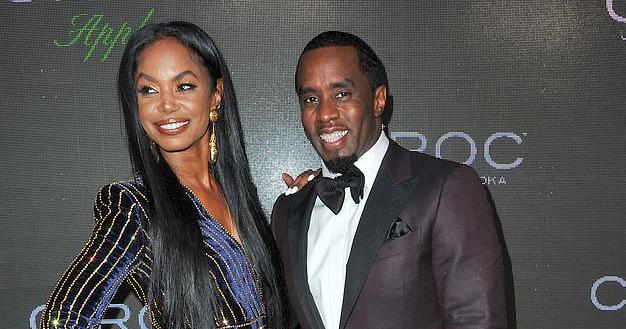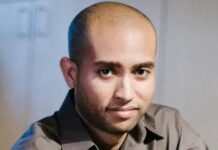*There is much to be said today about principles and standing for something. San Francisco 49ers’ Colin Kaepernick currently has the country all abuzz – some in anger – about the stand he took against National Anthem, but he’s certainly not the first to do it.
There are many courageous notables who’ve protested in like fashion, but we recently lost a stellar athlete – who earned the title of “The Greatest of All Time” – who faced the backlash that Kaepernick is facin and more for a stance that he took against war. The late Muhammad Ali was that athlete and he never backed down.
“If you think they’re being hard on Colin Kaepernick, they gave hell to Muhammad Ali,” said honoree Sheryl Lee Ralph.
Muhammad Ali lived by a set of principles – conviction, giving, confidence, respect, and spirituality – that helped catapult him to global prominence and respect, but more importantly, they were the foundation of a legacy that promotes striving for the betterment of the whole of humanity.
Those principles are interwoven into the memories that loved ones, friends and fans alike have of the Louisville, Ky-born and raised “champ,” but they can also be found being demonstrated by many that he inspired along his storied journey. The Louisville-based museum built upon his enduring legacy, The Muhammad Ali Center, took note of this fact some years ago and started The Muhammad Ali Humanitarian Awards to honor such individuals, while reinforcing the center’s mission:
“Everything the Muhammad Ali Center has done over the past ten years has prepared us for this day and every day forward. Throughout Muhammad’s life, his words, actions, and example inspired millions. The Ali Center has been entrusted with the mission to ensure that the legacy he left continues to inspire, transform and ignite change for the betterment of each individual and the whole of humanity,” said Lonnie Ali, his widow and the center’s co-founder.
Now in its fourth consecutive year, the Humanitarian Awards Gala honors those who “strive to make a difference in their communities and globally.” The long list of recipients includes philanthropic luminaries such as Common, Jim Brown and Harry Belafonte’, bringing us to this year, 2016, celebrating the selfless work of: Sheryl Lee Ralph (Global Citizenship Award); John Secada (Humanitarian of the Year Award); Louis Gossett Jr. (Education Award); Cindy Hensley McCain (Lifetime Achievement Award); John Rosenberg (Kentucky Humanitarian Award); and six young individuals who each represent one of the core principles.
The event was hosted by MSNBC anchor, Craig Melvin, with the following as presenters:
Lonnie Ali, Vice Chair and co-founder of the Muhammad Ali Center
Rasheda Ali, author, speaker, spokesperson, Parkinson’s Disease advocate, and Muhammad Ali’s daughter
Amber Gell, rocket scientist from Lockheed Martin and NASA
Kimberly Brooks, host and correspondent for Fusion Network
Eli A. Wolff, co-founder of the Sport and Development Project at Brown University
Mayor Greg Fischer, Mayor of Metro Louisville
Teddy Abrams, conductor for the Louisville Orchestra
The elegant evening, which included a full course dinner and ended with a champagne, coffee and desserts “mix and mingle,” was supplemented by musical performances by Mali Music, Humanity Passport Project Greater Community Choir and Teddy Abrams and Friends.
Sheryl Lee Ralph, one of the original Dreamgirls, hearkened back to her Broadway roots and treated the attendees to an impromptu performance of “Endangered Species” in support of the Black Lives Matter movement.
A few quotes from the evening that may perhaps spark the philanthropists that exists within us all, if we consider we’re all interconnected and outreach not only helps others, but also ourselves:
Sheryl Lee Ralph: “I met Ali when I was fourteen, I knew him all my life and he was like, “great things, Sheryl Lee, great things … [What I take from his journey is] overcoming, not letting anybody stop you. Knowing that just because a whole lot of people don’t agree with you doesn’t make it less right; it makes it even more right sometimes. And just because you don’t have a whole lot of people behind you, sometimes you don’t need those people behind you you just meed to move forward. You’ve got to do good just to do good and I’m very fortunate that God lit that passion in me and i just did it.”
Louis Gossett Jr: “I remember the lessons that I learned from my grandparents and my great grandparents. When I could remember, everything was good and when I couldn’t everything was bad. We have five, maybe six generations since slavery … we need to get those lessons back. I have a center called a Shamba Center, a Swahili word meaning ‘farm’, to put the lessons back. Kids, they don’t know what they’re doing, but when you have a child in the kitchen, in a high chair with food on it and the mama is on the phone too long, the food is going on the floor. These kids are reacting the same way today by shooting. They’re saying, ‘pay attention to me. What’s my lesson?’ We need to take back over, give them those lessons and tell them what they can and cannot do in their neighborhoods. We have an enormous amount to give to mankind, but these kids don’t know where to go or how to behave themselves.”
John Secada: It’s a sense of responsibility. I always felt that when I started to achieve any kind of success I felt that as an Afro-American Hispanic to give something back is a must, not just financially, but by my actions, what I stood for, by the causes that I represented, whatever I was asked to do, if I could lend my name as an Afro-Hispanic American I would love to do that. I grew up with role models like Ali … that’s what they did. They lived by their convictions and their principles, no matter what. Conviction and sacrifice [is what I took from Ali]. No matter what, stand up for what you believe in and be willing to put up with the consequences.”
Mali Music: “I’m grateful to be a general for my demographic. Look at what Muhammad Ali did. To take my field, me as an individual, to take the success or the opportunities that God affords and not let it go to my head and not lose sight of where that came from or what got me there and break open the doors for people that may not be fit to do all the work that it takes to go all the way and make room for their gifts, make room for the children [is how I relate what he did to what I do.] Take away all the things that can harden the hearts, steal from the mind … in a way sacrifice what I have to be able to put a hole or divot inside of the industry so that the children and the talent that’s coming won’t have the obstacles of selling their souls, looking for income …
The Ali Center was created to be a beacon that invited all to learn about what made Ali great – primarily his giving spirit and convictions – but its core mission is to preserve and share his legacy and ideals, to promote respect, hope, and understanding, and to inspire adults and children everywhere to be as great as they can be.
We Publish News 24/7. Don’t Miss A Story. Click HERE to SUBSCRIBE to Our Newsletter Now!






